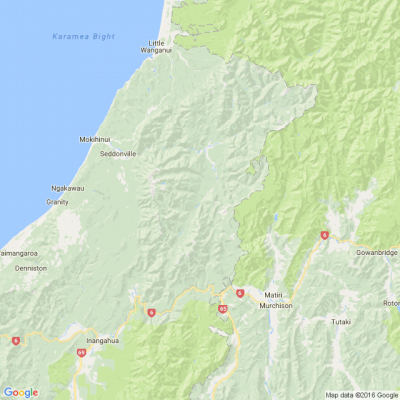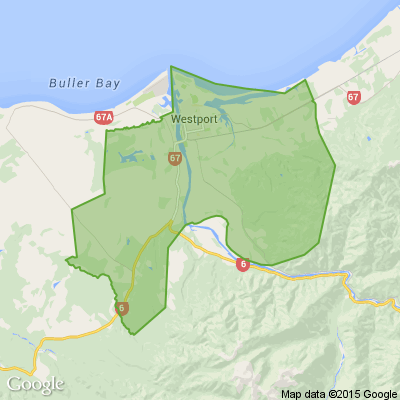Rural doctor trainee numbers increase on West Coast
By local democracy reporter Brendon McMahon:
A jump in rural doctor trainee numbers on the West Coast is expected to create one of the "largest cohorts of training doctors" in the region this year.
At the same time, the number of rural generalist positions appointed in the region have doubled over the past three years, says Health NZ Te Whatu Ora.
The rural generalist model was launched in 2019 to solve chronic shortages of doctors on the Coast.
Health NZ associate director of operations for the West Coast Philip Wheble said the rural generalist model "is paying dividends" across the region.
"We are investing in the future with the training of our junior medical workforce in rural hospitals and (in 2024) we will have one of the largest cohorts of training doctors we have ever had on the Coast."
There were 14.43 (full-time equivalent) rural generalists, filled by 19 individuals, in November 2023. This was up from 7.15 FTE positions, filled by nine individuals, in June 2020.
In addition, Health NZ had engaged an additional three full-time equivalent GPs (four individuals) and 7.3 full-time equivalent rural generalists (10 individuals) over the past three years, Wheble said.
The total number of full time equivalent Health NZ GPs in the region in June 2020 was 5.71 FTE, filled by seven individuals.
"This increased to a total of 8.63 FTE filled by 11 individuals in November 2023," he said.
"We have also seen an increase in nurse practitioners where we had three FTE filled by three individuals and this has now increased to 4.25 FTE filled by 6 individuals."
There continued to be a few West Coast positions to fill by Health NZ including a couple of GP, rural generalist and psychiatrist roles.
The rural generalist team covers primary care, urgent care, emergency medicine, general medicine, paediatrics, orthopaedics, and obstetrics/gynaecology.
He said bringing in more staff has helped Health NZ West Coast to support primary care as well as creating "more robust" emergency, obstetrics and medicine teams.
The Coast also had in-house specialists - psychiatry, anaesthetics, general surgery plus obstetrics and gynaecology.
Those services were bolstered via Health NZ Canterbury to support local care and tertiary transfers to Christchurch Hospital where needed. In addition, nurse practitioners in primary care had been increased.
"This significant improvement in the permanent staffing within primary care is something that has not occurred for some time on Coast. It also means that our spend on locums has decreased considerably in the last three years," Wheble said.
At the same time, primary care staff numbers in the region should continue to increase, given a greater focus on rural in the national health workforce plan and a commitment on the West Coast to develop its rural generalist workforce, he said.
"In the short term, we will continue managing our staffing challenges, which includes the use of locum doctors and telehealth."
* LDR is local body journalism co-funded by RNZ and NZ On Air.

Poll: Should the government levy industries that contribute to financial hardship?
As reported in the Post, there’s a $30 million funding gap in financial mentoring. This has led to services closing and mentors stepping in unpaid just to keep helping people in need 🪙💰🪙
One proposed solution? Small levies on industries that profit from financial hardship — like banks, casinos, and similar companies.
So we want to hear what you think:
Should the government ask these industries to contribute?

-
60% Yes, supporting people is important!
-
25.7% No, individuals should take responsibility
-
14.3% ... It is complicated
A Neighbourly Riddle! Don’t Overthink It… Or Do?😜
Do you think you know the answer? Simply 'Like' this post if you know the answer and the big reveal will be posted in the comments at 2pm on the day!
If you multiply this number by any other number, the answer will always be the same. What number is this?

Have you got New Zealand's best shed? Show us and win!
Once again, Resene and NZ Gardener are on the hunt for New Zealand’s best shed! Send in the photos and the stories behind your man caves, she sheds, clever upcycled spaces, potty potting sheds and colourful chicken coops. The Resene Shed of the Year 2026 winner receives $1000 Resene ColorShop voucher, a $908 large Vegepod Starter Pack and a one-year subscription to NZ Gardener. To enter, tell us in writing (no more than 500 words) why your garden shed is New Zealand’s best, and send up to five high-quality photos by email to mailbox@nzgardener.co.nz. Entries close February 23, 2026.







 Loading…
Loading…





